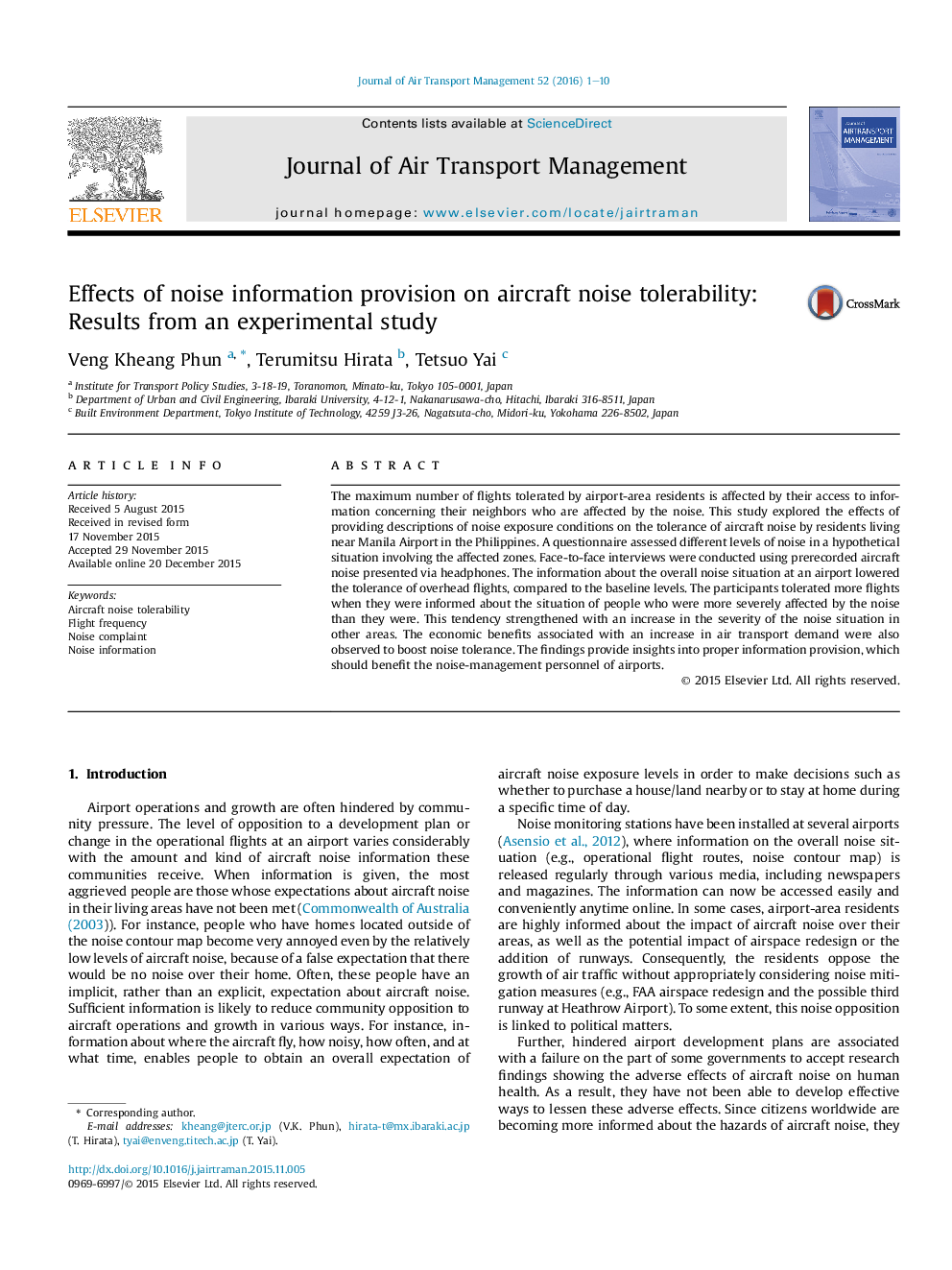| Article ID | Journal | Published Year | Pages | File Type |
|---|---|---|---|---|
| 1030697 | Journal of Air Transport Management | 2016 | 10 Pages |
•We examined the effects of noise information provision on noise tolerability.•We developed a questionnaire with a hypothetical setting to assess the effects.•We conducted face-to-face interviews with residents living near Manila Airport.•The information about overall noise situations lowered tolerance of overhead flights.•Participants tolerated more flights when considering people more affected by noise.
The maximum number of flights tolerated by airport-area residents is affected by their access to information concerning their neighbors who are affected by the noise. This study explored the effects of providing descriptions of noise exposure conditions on the tolerance of aircraft noise by residents living near Manila Airport in the Philippines. A questionnaire assessed different levels of noise in a hypothetical situation involving the affected zones. Face-to-face interviews were conducted using prerecorded aircraft noise presented via headphones. The information about the overall noise situation at an airport lowered the tolerance of overhead flights, compared to the baseline levels. The participants tolerated more flights when they were informed about the situation of people who were more severely affected by the noise than they were. This tendency strengthened with an increase in the severity of the noise situation in other areas. The economic benefits associated with an increase in air transport demand were also observed to boost noise tolerance. The findings provide insights into proper information provision, which should benefit the noise-management personnel of airports.
